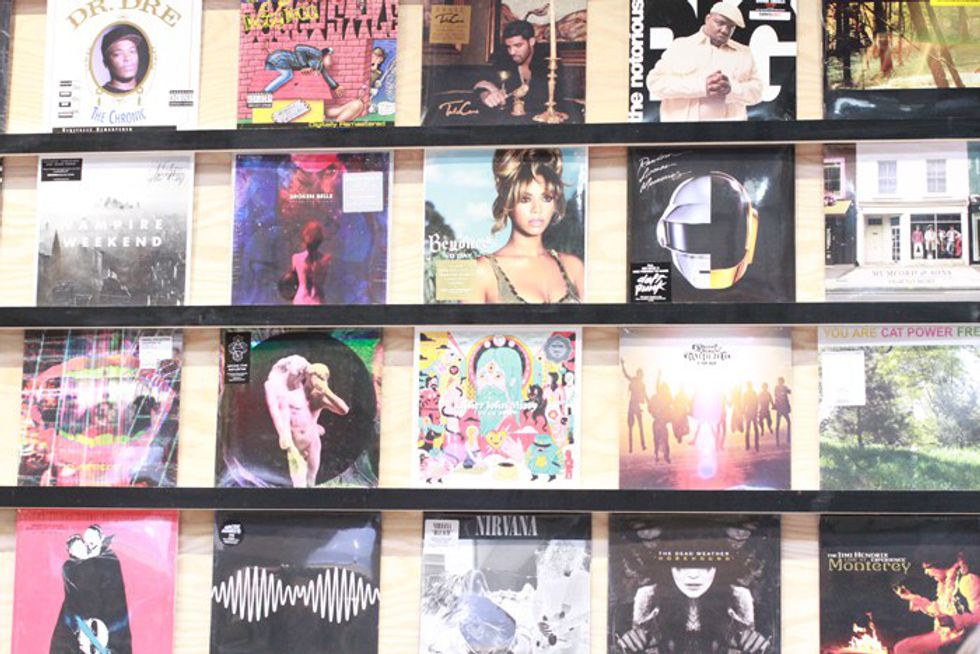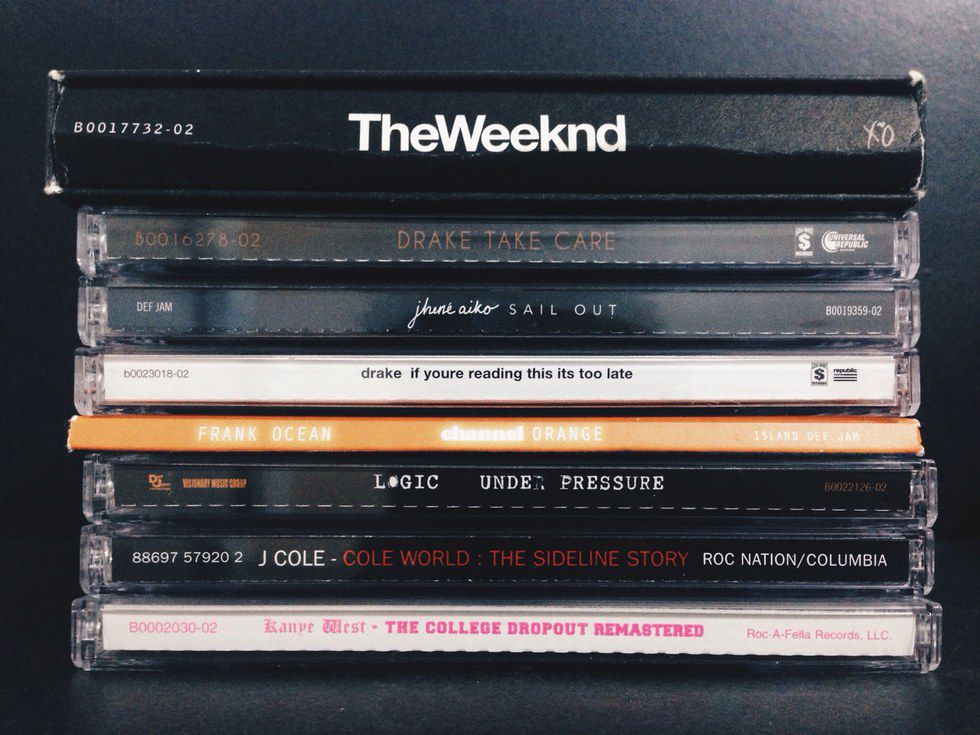I grew up with a CD player.
I can remember everything about that experience: the satisfaction of flipping open the top to put a CD in, the electrical sounds the player made when you pressed the play button, and trying not to rattle it around too much lest the music start skipping around. Since I couldn't buy my own music, I would borrow CDs from any of my two older brothers, and I suppose that is how my love for physical copies of music began.
The cover art of a CD was always like a magnet to me. I had to study it and let it be seared into my brain that this image was associated with this album. In many ways, the cover art was very much an extension of the music itself. It helped to construct a tone for the duration of the album. It may seem superficial to praise the CD simply for whats on the outside of the case, and to some degree that is true, but there is something more human about holding an album's cover art and lyrics in your own hands than it is to see them through a computer screen.
I didn't grow up around vinyl, though I really wish I did. I didn't start collecting until I was a freshman in college. To me, it was just another physical representation of the album, but bigger. The larger album covers were always eye catching and the record itself was always gorgeously hypnotizing as it spun around.
The more I began going down the rabbit hole of record collecting, the more I found that vinyl was, above all other formats, the most human of them all. When we talk about the sound quality of the analog format (vinyl) vs. the digital format (CDs, MP3s) there is no question that the digital format is able to pick up on every little sound. That being said, its ability to pick up on everything is also its downfall.
It is commonly said that digital formats generally feel colder, and if you've ever listened to a vinyl record than you know exactly what I'm talking about. The analog format is the best representation of sound as we hear it in the outside world. The analog sound waves are smooth and continuous as opposed to choppy. Add in the occasional pops and cracks when listening to a record, and the experience is simply human and warm.
If I had a dollar for every time someone called my hobby impractical, I'd be able to buy a lot more records. That being said, I can understand where they are coming from. Digital copies take up space, you have to listen to them one at a time, and they aren't exactly portable. Heck, even I wouldn't be caught dead in public without my music.
With all that said, humans aren't exactly practical. I know many people who choose to read an actual book over an e Reader. They scoff over the thought of experiencing a story through such means. Wouldn't it be more practical to use and e reader? I know many people who procrastinate as though there were no tomorrow. Wouldn't it be more practical to get the job done early? Because humans always do impractical things, that does not mean collecting CDs and LPs are any less practical. It just makes it understandable.
Buying CDs and LPs are also an excellent way to support an artist. In an age where it is incredibly easy to get a hold of free music, one has to take a step back and realize that we aren't doing these artists any favors.
CDs and LPs are just cool. By far, it is more impressive to have an actual library of music than to say you have a bunch of songs on your phone or computer. There is just an element of romance present with these disks. You can feel it when you pop the CD out of its case, when you pick a specific record to play while you're eating dinner with your significant other, or when you're staring up at the ceiling fan as the tempo of the song begins to match.




















